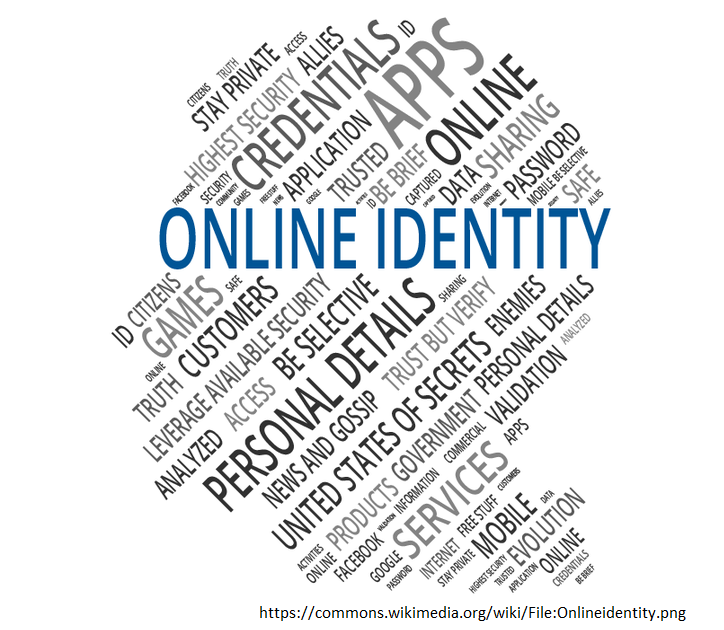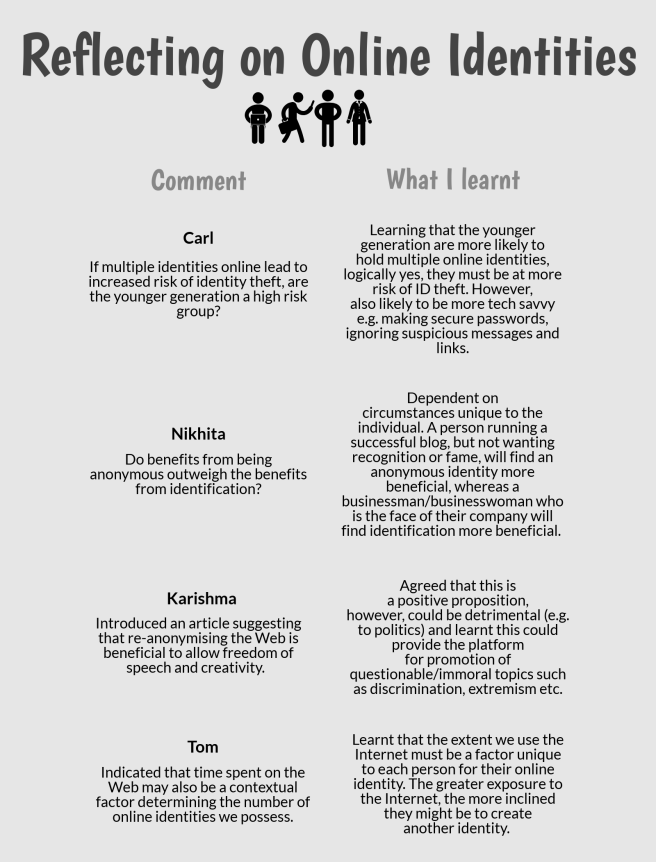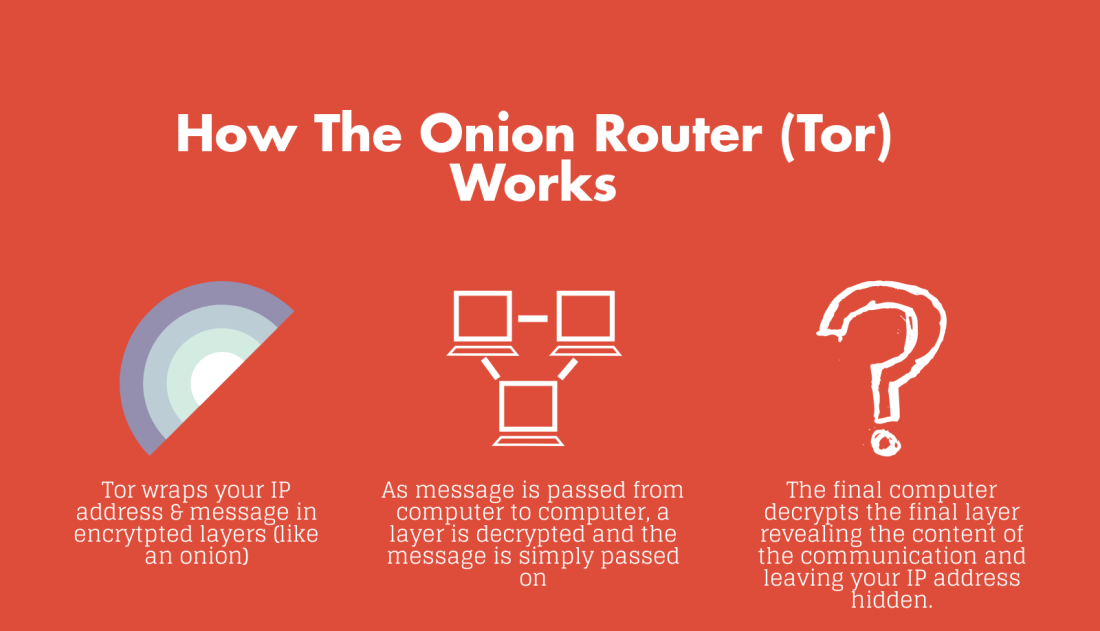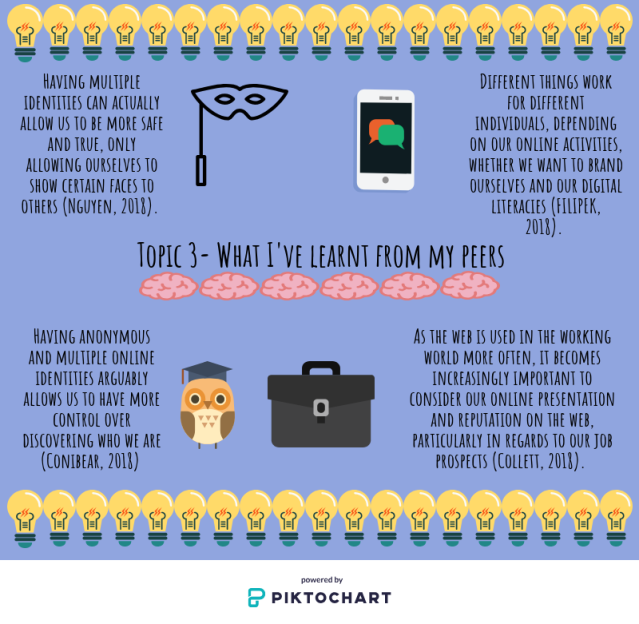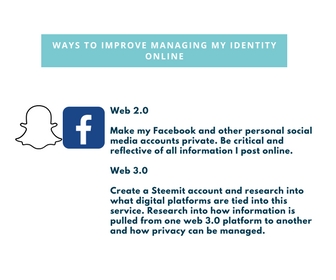
Reflecting on Online identity
My initial argument when it came to online identities, skewed towards the benefits of having multiple identities or being anonymous online. Adam’s comment on my blog and the link he included to a wired article bought to my attention the potential motivations some people might have for creating false persona’s online.
Continue reading →

